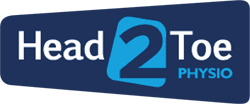Treatment Information
What is Balance/Vestibular Rehabilitation?
Vestibular Physiotherapy is a specialist area of physiotherapy that helps the brain to adjust and adapt to problems caused by the inner ear, reducing or completely alleviating dizziness and vertigo, improving balance, restoring normal function and most importantly regaining your confidence so you can fully appreciate a better quality of life again.
Did you know that 1 in 4 adults in the UK complains of dizziness and half of all peripheral vertigo complaints are due to BPPV making it the most common cause of peripheral vertigo. Dizziness / vertigo stemming from BPPV can often be completely alleviated in as little as 2 treatment sessions!
What causes vestibular problems?
Your vestibular system is responsible for coordinating your balance and involves constant communication from the inner ear to the brain. When there is a problem with this system misleading or decreased information is sent to the brain giving an untrue sensation of movement and balance. This conflicting information produces symptoms of dizziness, nausea and headaches. Over time it can leave you feeling drained and significantly impact daily life.
What will vestibular rehab / physio treatment involve?
After extensive testing to find the exact cause of your vestibular problems your physiotherapist has a range of treatment options to resolve your symptoms. Normally treatment would involve a blending of advice on activity adjustments and manual treatments to help reset and retrain your vestibular system. You will also be given a tailored and extensive home exercise plan to follow between therapy sessions. Treatment options include;
Epley Manoeuvre
This treatment applies if BPPV is the diagnosis. It involves sequenced and supported head and body movements. The Epley manoeuvre is well established and evidence based and is a very effective treatment that usually works within one session.
Gaze Stability Retraining
Gaze stability retraining involves exercises that teaches your eyes to move and focus correctly whilst moving your head. This improves the quality and accuracy of information that your eyes gives to your brain.
Balance Exercises
Balance exercises can be very simple from standing on one leg or can be more challenging like having your eyes closed on soft surface. The more practise you do the more finely tuned your balance system becomes and the more stable you will be
Strengthening Exercises
Strengthening exercises involve repeated movements with or without resistance. With increased strength your muscles have required the speed and power to react to demands on the balance system and essentially make you much safer.
Functional task practice
Repeating tasks desensitises the vestibular system so you can do activities without getting symptoms.
Gait re-education
Gait re-education involves various walking exercises. This may include avoiding obstacles, walking whilst turning your head or walking and counting backwards with varying speeds. This will test the whole of the vestibular symptom meaning is can cope better when put under pressure without causing symptoms.
Symptom management strategies
Learning the mechanisms to cope with symptoms means your condition can be kept more calmy regulated.
Relaxation
Learning methods to relax aids the body to recover from vestibular symptoms. This may involve breathing control, music, relaxation scripts or advice on sleep.
Pacing (planning the speed, frequency and intensity of daily tasks)
Fatigue is a large aspect of Labyrinthitis therefore learning to pace activities is crucial to controlling symptoms. Doing too much too soon will overload the vestibular system.
Graded exposure to uncomfortable situations
Straying away from certain activates or situations is understandably easier and more comfortable as you do not become dizzy but for long term and effective relief we need to gradually expose your body to situations which are more challenging. You will be given daily tasks to achieve this.
Our frequently asked questions about Balance/ Vestibular Clinic?
Vestibular rehab / physio is interested in the treatment of a range of conditions that affect the inner ear and your sense of balance, dizziness and sometimes nausea. An initial assessment will determine if physiotherapy is suitable in treating your particular vestibular issue. For the majority of cases one or two sessions can significantly reduce symptoms or alleviate them completely.
VRT is suitable for people experiencing:
-
Dizziness or vertigo
-
Balance problems or unsteadiness
-
Inner-ear disorders (e.g., BPPV, labyrinthitis, vestibular neuritis)
-
Concussion-related dizziness
-
Motion sensitivity
-
Age-related balance decline
Vestibular rehabilitation can effectively treat:
- BPPV (Benign Paroxysmal Positional Vertigo)
- Vestibular neuritis
- Labyrinthitis
- Ménière’s disease (helps manage symptoms)
- Persistent Postural-Perceptual Dizziness (PPPD)
- Migraines with dizziness
- General balance impairment
A therapist uses tailored exercises to help retrain the brain and vestibular system. These include:
- Gaze stabilisation exercises
- Balance training
- Habituation exercises (to reduce sensitivity)
- Canalith repositioning for BPPV
Your therapist will:
- Take a detailed medical history
- Assess balance, gait, eye movements and vestibular function
- Identify the cause of your symptoms
- Create a personalised treatment plan
No, this is not necessary. It is however very useful for you to bring any letters or results of investigations you have had, your current medication list and be familiar with your full previous medial history.
At the time of writing this, current waiting lists vary on based on location and demand however average waiting times for the South East are currently 4 months.
An initial assessment will typically last 60 minutes. Follow-up sessions will typically be 45 minutes. If you require longer treatment sessions you will be informed of this at the end of the initial assessment.
Vestibular rehab treatment methods and exercises and fundamentally designed to be safe. Initially they can agitate symptoms due to slightly challenging your vestibular system but this discomfort is usually improves with practise and as your vestibular system becomes familiar with its new tasks. James will work closely with you to ensure the exercise given are the correct level for you and not unnecessarily demanding or uncomfortable.
Please use our online booking system or call us on 01306 876 072
Your vestibular system is responsible for coordinating your balance and involves constant communication from the inner ear to the brain. When there is a problem with this system misleading or decreased information is sent to the brain giving an untrue sensation of movement and balance. This conflicting information produces symptoms of dizziness, nausea and headaches. Over time it can leave you feeling drained and significantly impact daily life.
If you are experiencing symptoms such as dizziness or vertigo or problems with unsteadiness or balance this is not normal and should not be accepted as a natural part of ageing. It’s vital to consult with a specialist so that you can be fully assessed and start your treatment plan or if physio is not suitable to be referred on to the correct service.
For someone with a vestibular condition treatment can be genuinely life changing. You will achieve a greater understanding of your condition and develop coping strategies, some patients will experience instant and lasting relief from their symptoms. Allowing you to return to normal activities without obstruction.
Some of the benefits experienced by clients undergoing vestibular rehabilitation include;
- Reduced dizziness and risk of falls
- Improved balance
- Increased confidence
- Decreased stress and anxiety and improved focus
- Increase energy levels and exercise tolerance.
- Return to enjoying activities of daily living
The frequency and number of sessions is dependent upon your specific presentation and symptoms and will be discussed with you at the end of the initial assessment. Some patients will only require one session while other patients will require more regular ongoing treatment.
Vestibular problems can have a range of different causes, some of which respond extremely well to physiotherapy. An initial assessment would be required to identify the likely cause of the vestibular problem.
These tests include;
- Eye test
- Balance tests
- Positional tests
- Gait analysis
If the results are inconclusive or your symptoms are more complex you may be referred for further medical tests to confirm the cause of your vestibular issues. Your local GP surgery or hospital may carry out some of the following tests under the guidance of a neurologist or other specialist.
- MRI scan
- Hearing tests
- Caloric / nutrition testing
After extensive testing to find the exact cause of your vestibular problems your physiotherapist has a range of treatment options to resolve your symptoms. Normally treatment would involve a blending of advice on activity adjustments and manual treatments to help reset and retrain your vestibular system. You will also be given a tailored and extensive home exercise plan to follow between therapy sessions. Treatment options include;
Epley Manoeuvre
This treatment applies if BPPV is the diagnosis. It involves sequenced and supported head and body movements. The Epley manoeuvre is well established and evidence based and is a very effective treatment that usually works within one session.
Gaze Stability Retraining
Gaze stability retraining involves exercises that teaches your eyes to move and focus correctly whilst moving your head. This improves the quality and accuracy of information that your eyes gives to your brain.
Balance Exercises
Balance exercises can be very simple from standing on one leg or can be more challenging like having your eyes closed on soft surface. The more practise you do the more finely tuned your balance system becomes and the more stable you will be
Strengthening Exercises
Strengthening exercises involve repeated movements with or without resistance. With increased strength your muscles have required the speed and power to react to demands on the balance system and essentially make you much safer.
Gait re-education
Gait re-education involves various walking exercises. This may include avoiding obstacles, walking whilst turning your head or walking and counting backwards with varying speeds. This will test the whole of the vestibular symptom meaning is can cope better when put under pressure without causing symptoms.
Functional task practice
Repeating tasks desensitises the vestibular system so you can do activities without getting symptoms.
Symptom management strategies
Learning the mechanisms to cope with symptoms means your condition can be kept more calmy regulated.
Relaxation
Learning methods to relax aids the body to recover from vestibular symptoms. This may involve breathing control, music, relaxation scripts or advice on sleep.
Pacing (planning the speed, frequency and intensity of daily tasks)
Fatigue is a large aspect of Labyrinthitis therefore learning to pace activities is crucial to controlling symptoms. Doing too much too soon will overload the vestibular system.
Graded exposure to uncomfortable situations
Straying away from certain activates or situations is understandably easier and more comfortable as you do not become dizzy but for long term and effective relief we need to gradually expose your body to situations which are more challenging. You will be given daily tasks to achieve this.




